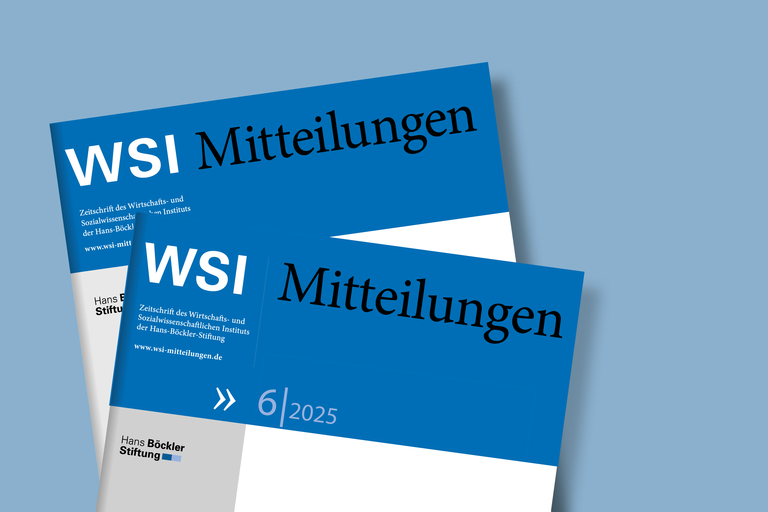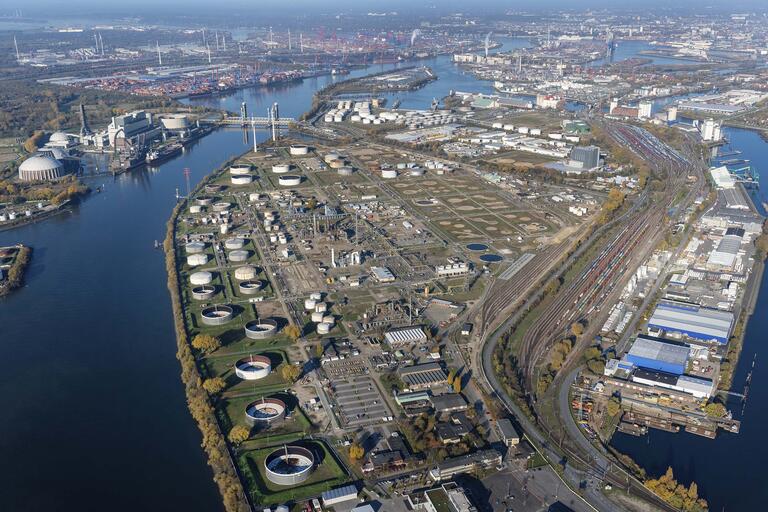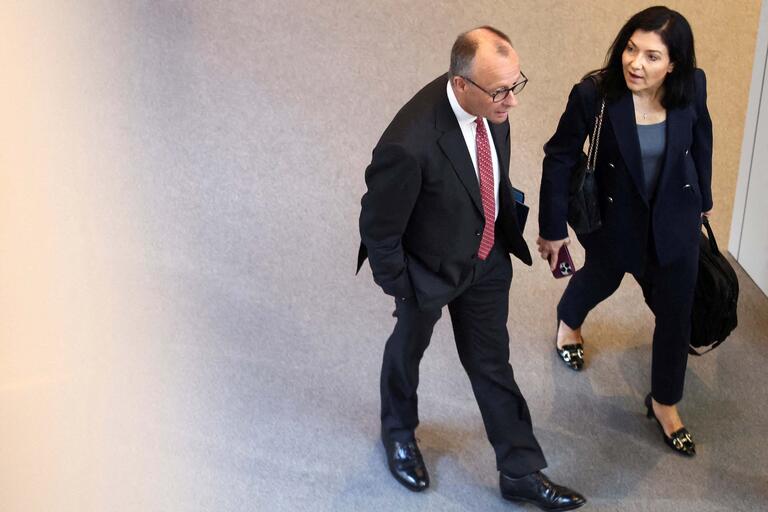
Quelle: HBS
The crisis of globalisation
| Veranstalter: | Hans-Böckler-Stiftung |
| Ort: | Berlin, Best-Western Hotel International |
| vom: | 09.11.2017, 09:00 Uhr |
| bis: | 11.11.2017, 22:00 Uhr |
The market-radical regime of globalisation started to unfold in the 1970s. Since then, integration of financial markets and global value chains have grown to unprecedented levels. Multinational companies and financial institutions have gained substantial power. Globalisation produced winners, but also many losers. Contrary to expectations, many countries have experienced low GDP growth, accompanied by financial booms-bust cycles and high unemployment. Inequality within countries and between developed and poor countries increased, with only a small number of developing countries catching up. Right-wing parties are on the rise and hit long-standing left anti-globalisation movements. All this seems to indicate that the present type of globalisation is economically and politically exhausted. At our 21st conference, we assessed how the past globalisation process can be explained, in which direction it may develop, and which policies are needed to make the global economy beneficial for all.
During three conference days more than 400 participants engaged in lively discussions with presenters of about 140 selected papers in parallel sessions and nine keynote presentations. On this website you find the conference documentation including papers, slides and videos of introductory workshops and plenary sessions.
Here are the youtube Links for the Book Session CORE vs. ´in Context´
Link Carlin and Stirati
Link Dullien and Lavoie
Discussion
Kontakt:
Sabine Nemitz
Parallel Session Papers for Download
Three Globalizations, Not Two: Rethinking the History and Economics of Trade and Globalization
Thomas Palley (Washington D.C.)
Globalisation after the Financial Crisis: Structural Change and the Reconfiguration of Geography
Jonathan Perraton (University of Sheffield)
The secular tendency to stagnation in the framework of globalization
Luiz Carlos Bresser-Pereira (Getulio Vargas Foundation)
Should Bill Gates be allowed to be so rich? Function and justification of individual wealth in economic paradigms from classical economics to neoliberalism
Hagen Krämer (Karlsruhe University of Applied Sciences)
Inequality I
Explaining Income Inequality Trends in Countries: An Integrated Approach
Petra Sauer (Vienna University of Economics and Business), Narasimha Rao, Shonali Pachauri
Income inequality and household indebtedness – the U.S. case
Rafael Wildauer (University of Greenwich), Jan Behringer
Gender, Class and the Crisis
Carlo D‘Ippoliti (Sapienza University of Rome) Valeria Cirillo , Marcella Corsi
The effect of income distribution and gender equality on growth and employment: the case of the UK
Eurydice Fotopoulou (University of Greenwich), Ozlem Onaran, Cem Oyvat
Economic Policy
Stagnation policy in the Eurozone and economic policy alternatives: A Steindlian/neo-Kaleckian perspective
Eckhard Hein (Berlin School of Economics and Law)
A wage and a profit rule for the euro area as a way to stabilize economic developments and the functional income distribution
Camille Logeay (University of Applied Science Berlin), Heike Joebges
The institutional government budget constraint: Whence it came, why it is unsafe, and how should be reformed.
Andrea Terzi (Franklin University Switzerland)
Fiscal implications of monetary policy with negative interest rates
Dirk Ehnts (Chemnitz University of Technology)
Fiscal Policy
Expansionary Austerity and Reverse Causality
Christian Breuer (Chemnitz University of Technology)
Fiscal Consolidations and Heterogeneous Expectations
Joep Lustenhouwer (University of Bamberg), Cars Hommes, Kostas Mavromatis
Austerity and Inequality: A closer look
Sebastian Gechert (Macroeconomic Policy Institute), Christian Koutny, Miriam Rehm, Matthias Schnetzer
The Dynamic Effects of Fiscal Consolidation Episodes on Income Inequality: Evidence for 17 OECD Countries over 1978-2013
Philipp Heimberger (Vienna Institute for International Economic Studies)
Financial Macro I
Modeling Credit Market Interactions with Securitization in an Agent Based-Stock Flow Consistent Approach
Thomas Theobald (Macroeconomic Policy Institute), Benjamin Lojak
Institutionality and Effects of Basel III on Bank Credit: The Case of Brazil
Ana Rosa Ribeiro de Mendonça, Simone Deos, Olivia Bullio and Fernanda Ultremare (University of Campinas)
Risk sharing by financial markets in federal systems: What do we really measure?
Sebastian Dullien (University of Applied Sciences Berlin)
Methodology and Paradigm Change
Micro, Macro, Maths: Is that all? An International Study on Economics Bachelor Curricula
International Student Initiative for Pluralism in Economics (ISIPE)
The Research Excellence Framework 2014, Journal Ratings and the Marginalization of Heterodox Economics
Quirin Dammerer (Kingston University), Engelbert Stockhammer, Sukriti Kapur
Mental Models and the Causes of Hysteresis in Economic Policy Making
Eckehard Rosenbaum (European Commission - Joint Research Centre)
Globalization, Climate Change, and the Urgent Need for the Reconceptualization of Capitalism
Jack Reardon (Hamline University)
The Role of Peripheral Currencies in the International Monetary System
Bianca Orsi (University of Leeds)
Acquisition or exploitation of competitive advantages as drivers for internationalization of Argentine companies? The case studies of Techint and Arcor
Brenda Denise Dorpalen (University of Turin)
Foreign exchange swaps: A near substitute for international reserves in peripheral countries? The case of Brazil
Joao Pedro Macalos (University of Paris 13 / University of Campinas)
The Impact of Globalization on Tax Revenues in the EU and Turkey
Kazım Okan Erol (Marmara University / European Union
Institute)
Inequality and Financial Housing Markets
Overhead labor and feedback effects between capacity utilization and income distribution: Estimations for the USA economy
Lilian Nogueira Rolim (University of Paris 13 / University of Campinas)
Financial sector and household balance sheet structures as determinants of income and wealth inequality in USA since 1980s
Hanna Szymborska (University of Leeds)
Credit Rating Agencies (CRAs), Th e Agency Dilemma on Wall Street and the Global Financial Crisis
Jahnavi Rao (University Kassel), Thiago Souza da Costa
Re-thinking the housing-macro nexus: housing market churn in aggregate demand formation and stability, a wavelets based analysis
Bazil Sansom (Kingston University London)
Distribution and Growth I
A sensitivity analysis of short-run demand regimes
Christian Koutny (Kingston University London), Engelbert Stockhammer
Effects of Wealth Distribuition on Economic Activity
Eduardo Rawet (University of São Paulo)
A Post-Kaleckian-Rangelian Approach to Recent Brazilian Experience of Wage-Led Policy
Hugo Pereira (Federal University of Minas Gerais), Fabrício Missio
An Agent Based Model of Complex Investment Dynamics along Kaleckian lines
Adriano dos Reis Miranda L Oliveira (University of Sao Paulo)
Emerging Economies and Development Economics
Inflation and hyperinflation in Venezuela (1970s-2016) - a post-Keynesian interpretation
Marta Kulesza (University of Paris 13)
Financing industrial upgrading and diversification in resource rich developing countries: the case of
Chile and Malaysia
Sultan Altowaim (University of Glasgow)
African Transport Corridors: A Problem-Driven Framework for Applied Political Economy Analysis of the North-South Corridor Programme
Cemre Mutlu
Financialisation and Development. A Case Study of Ethiopia
Anne Löscher (University Siegen)
Macroprudential and Monetary Policy
Unconventional Monetary Policies: Th e Euro Area Experience
Cristiano Boaventura Duarte (University of Paris 13 / Federal University of Rio de Janeiro)
Macroprudential policy in a dynamic stochastic disequilibrium model
Miriam Oliveira Silva Português (Federal University of Rio de Janeiro)
The Critical Juncture of European Financial Market Supervision? Brexit and the Supervision of CCPs in Europe
Christian Resch (Goethe University Frankfurt)
Current Account, Trade and Inequality
The determinants of German exports – An analysis of intra- and extra-EMU trade
Henriette Heinze (Macroeconomic Policy Institute)
Labour Market Reforms in a Globalised and Crisis-ridden World: Dissecting the Germany Export Miracle
Ravi Kant Tripathi (Paris-Sorbonne University)
Abolishing the Wealth Tax - A Case Study of Germany
Alena Bachleitner
How to explain Wage Growth Slowdown in Austria?
Philipp Haunschmid (Chamber of Labour for Upper Austria ), Philipp Gerhartinger, Dennis Tamesberger
Ending the micro-macro divide in the teaching of introductory economics – the CORE project’s „The Economy“
Wendy Carlin (University College London)
Comment on CORE
Antonella Stirati (University Roma Tre)
Macroeconomics in Context: A European Perspective
Sebastian Dullien (University of Applied Sciences Berlin)
Comment on Macroeconomics in Context
Marc Lavoie (University of Paris 13)
Recovery in Europe? Macroeconomic case studies
France, 2017: Fully joining globalisation?
Catherine Mathieu and Henri Sterdyniak (OFCE)
The demand-led pattern of economic growth of the Spanish economy: Understanding the true macroeconomic causes behind the change from recession to recovery
Luis Cardenas (University Isabel I) and Jorge Uxó (University of Castilla), Paloma Villanueva, Ignacio Alvarez
New ‘growth champions’ and new ‘sick men’ in Europe: A macroeconomic perspective
Achim Truger (Berlin School of Economics and Law)
Labour Markets
Duration Dependence as an Unemployment Stigma: Evidence from a Field Experiment in Germany
Patrick Nüß (Kiel University / Macroeconomic Policy Institute)
New Approaches to the Study of the Long-Term Non-Employment Duration via Survival Analysis: Italy, Germany and Spain
Toralf Pusch (Institute of Economic and Social Research)
The German minimum wage: effects on job quality and employees’ job satisfaction
Miriam Rehm (Austrian Chamber of Labour), Toralf Pusch
Does actual unemployment affect the NAWRU? An unobserved components approach
Engelbert Stockhammer (Kingston University London), Robert Jump
Rethinking the Theory of Economic Policy
The macrodynamics of household debt, growth, and inequality
Gaël Giraud (University of Paris 1), Matheus Grasselli
Inequalities: Why does it matter for both the demand and supply side of the economy?
Ozlem Onaran (University of Greenwich)
Implementation of Optimal Monetary Policy in a New Keynesian Model under Heterogeneous Expectations
Tim Hagenhoff (University of Bamberg)
Financialisation
The Global Rise of Asset Prices and the Decline of the Labor Share
Pedro Trivin (University of Girona), Ignacio Gonzalez
Financialization, globalization, oligopolization: The role of intangible assets and increased market power in explaining the profit and capital accumulation dynamics in the US economy
Ozgur Orhangazi (Kadir Has University)
The theory of debt shift and the end of financialization
Dirk Bezemer (University of Groningen)
The impact of profit shifting and multinationals’ tax incentives on national accounts data: Revisiting US trade elasticities
Rafael Wildauer (University of Greenwich) and Javier López Bernardo (BrightGate Capital)
Instability and Cycles
Testing an Extended version of Goodwin’s Growth-Cycle Model to the US Economy
Ricardo Araujo (University of Brasília), Helmar Moreira, Marwil Dávila-Fernández
The US economy since the 2007-09 recession
Trevor Evans (Berlin School of Economics and Law)
Economic Forecasting with an Agent-based Model
Michael Miess (Complexity Science Hub Vienna / International Institute for Applied Systems Analysis), Sebastian Poledna, Stefan Thurner
A Two-Country Dynamic Stochastic Disequilibrium Model for a Currency Union
Christian Schoder (The New School for Social Research), Oliver Picek
Top Income Shares and Aggregate Wealth-Income Ratio in a Two-Class Corporate Economy
Soon Ryoo (Adelphi University)
Varieties of capitalism, increasing income inequality, and the sustainability of long run growth
Mark Setterfield (The New School for Social Research)
CEO Pay: Financialization, Volatility, and Agency
Peter Skott (University of Massachusetts)
Social Democracy and Distributive Conflict in the UK, 1892-2012
Roberto Veneziani (Queen Mary University of London School of Economics and Finance), Carlo Fiorio, Simon Mohun
Monetary Policy
Optimal Monetary Policy in a Mixed-Frequency New Keynesian Macroeconomic Model with Animal Spirits
Naira Kotb (University of Bamberg), Matthias Lengnick,Christian Proaño, Hans-Werner Wohltmann
Nonlinear Policy Rules, Dual Mandate Monetary Policy and Expectational Consistency
Carlos Eduardo Drumond (State University of Santa Cruz), Cleiton Silva de Jesus, João Basilio Pereima
Monetary Policy since the Global Financial Crisis
Philip Arestis (University of Cambridge)
Negative interest rates on deposits in the eurozone
Domenica Tropeano (University of Macerata)
Distribution and Growth II
Varieties of Capitalism and growth regimes: The role of income distribution
Till van Treeck (University of Duisburg-Essen), Jan Behringer
Effects of factor shares and income inequality on demand, growth and the trade balance – an illustrative model with regime endogeneity
Franz Prante (Berlin School of Economics and Law)
Growth and distribution in a Two-Country Supermultiplier SFC model
Lidia Brochier (University of Campinas / University of Paris 13)
Keeping up with the Joneses: Other-regarding Preferences and Growth
Daniele Tavani (Colorado State University), Luke Petach
Globalisation
The impact of globalisation on a small open economy
Huub Meijers (Maastricht University School of Business and Economics)
China: Capital flight or renminbi internationalization?
Bruno De Conti and Paulo Van Noije (University of Campinas)
An Assessment of Impact of Globalization on Indian IT Exports
Manzoor Malik (Pondicherry University)
Karl Polanyi and the Euro Crisis: On Ficticious Commodities and the Double Movement
Reinhard Schumacher (University of Potsdam)
SFC Models I
A SFC model for Italy
Marco Veronese Passarella (Leeds University)
Financial inflows, crisis, and recovery in small open economies: A Stock-Flow Consistent (SFC) approach
Hamid Raza (Aalborg University ), Bjorn Runar Gudmundsson, Gilfy Zoega, Mikael Randrup Byrialsen
Money Endogeneity in a Dollarized Economy
Gennaro Zezza (University´Di Cassino & Levy Institute of Economics)
Networks of stranded assets: A case for a balance sheet approach
Antoine Godin (French Agency for Development), Emanuele Campiglio, Eric Kemp-Benedict
Kaleckian and Harrodian Models
An Ecological Kaleckian model for an open economy
Giulio Guarini (Tuscia University)
Convergence in a neo-Kaleckian model with endogenous technical progress and autonomous demand growth
Marc Lavoie (University of Paris 13), Won Jun Nah
Harrod’s Long-Range Capital Outlay as a Stabilizer of Harrodian Instability
Reiner Franke (Christian-Albrechts-University of Kiel)
The Trouble with Harrod: The fundamental instability of the warranted rate in the light of the Sraffi an Supermultiplier
Fabio Freitas (Federal University of Rio de Janeiro), Franklin Serrano, Gustavo Bhering
Endogenizing non-price competitiveness in a BoPC growth model with capital accumulation
José Luis Oreiro (University of Brasília), Marwil Dávila-Fernández, Mario Dávila
Managing Real Exchange Rate for economic growth: Empirical evidences in developing countries
Fabricio Missio (Federal University of Minas Gerais), Lúcio Otávio Seixas Barbosa, Frederico Gonzaga Jayme Junior
Real Exchange Rate and the Endogeneity of Income Elasticities: Theoretical aspects and empirical evidence.
Fabricio Missio (Federal University of Minas Gerais), Frederico Gonzaga Jayme Junior, Gustavo Britto, José Luis Oreiro
Kaldor-Verdoorn’s Law and Institutions: A Study of the Brazilian Economy
Joao Romero and Hugo Pereira
Inequality in Europe
A stylized Neo-Kaleckian growth model with personal income distribution and endogenous wealth distribution for the EU
Stefan Ederer (Austrian Institute of Economic Research) and Miriam Rehm (Austrian Chamber of Labour)
Capital Income in the Eurozone
Michael Ertl (Austrian Chamber of Labour), Stefan Humer, Mathias Moser, Matthias Schnetzer
Trust in National Governments in CESEE Countries: Does Income Distribution Have an Impact?
Christian Alexander Belabed (Oesterreichische Nationalbank), Mariya Hake
Electoral Choice and Income Inequality across Europe
Judith Derndorfer (Vienna University of Economics and Business)
International Trade and Current Account Imbalances
The relevance of unit labor costs for exports in the Euro Area
Oliver Picek (Vienna University of Economics and Business), Bozena Bobkova
Spanish economic recovery: A transition to an export-led model?
Paloma Villanueva (Instituto Complutense de Estudios Internacionales), Luis Cardenas, Ignacio Álvarez, Jorge Uxó
Reducing high current account surpluses – the case of Germany
Jan Priewe (Macroeconomic Policy Institute)
Germany’s current account surplus: What is the role of the weak euro exchange rate and the ECB?
Sebastian Watzka (Macroeconomic Policy Institute)
Distribution and Growth III
Induced shifting involvements and cycles of growth and distribution
Michalis Nikiforos (Levy Economics Institute of Bard College)
Asset prices and the functional distribution of income
Julius Probst (Lund University)
Determinants of the wage share: Evidence from firm-level data
Alexander Guschanski (University of Greenwich), Özlem Onaran
Corporatism and the Labour Income Share
Mario Holzner (The Vienna Institute for International Economic Studies)
Global Value Chains
Intellectual monopoly in global value chains
Cedric Durand (University of Paris 13), William Milberg
Estimations of Complementarity between Manufacturing and Modern Services
Nelson Marconi (Getulio Vargas Foundation), Guilherme Magacho, Gustavo Souza
The financialisation-off shoring nexus and the capital accumulation of U.S. nonfinancial firms
Tristan Auvray (University of Paris 13), Joel Rabinovich
Minsky meets Agent Based Models
Winter is possibly not coming: Mitigating financial instability in an agent-based model with the interbank market
Lilit Popoyan (Scuola Superiore Sant’Anna), Mauro Napoletano, Andrea Roventini
A strategy switching approach to Minskyan business cycles
Robert Jump (University of the West England), Engelbert Stockhammer, Jo Michell
Regime shift in Minsky‘s Financial Instability Hypothesis
Clément Mouhot (University of Cambridge)
Regulation for leverage induced systemic risk in an agent based model
Giorgos Galanis (Goldsmiths, University of London), Alex Karlis, Spyros Terovitis and Matthew Turner
Exchange Rates, Current Account and International Trade
Changes in real and nominal exchange rates and the trade balance
Fabian Lindner (Macroeconomic Policy Institute)
Exchange rate dynamics and balance sheet effects: A Minskyan approach to boom-bust-cycles in emerging markets
Karsten Köhler (Kingston University)
External Adjustment in the European South
Enno Schroeder (Delft University of Technology)
Asymmetric Exchange Rate Pass-Through: Evidence, Inflation Dynamics and Policy Implications for Brazil (1999-2016)
Debora Pimentel (Federal University of Rio de Janeiro), Andre Modenesi, Viviane Luporini
Monetary Macroeconomics
Reflections on the dysfunctional global monetary order and the dollar
Joerg Bibow (Skidmore College and Levy Economics Institute)
Monetary sovereignty, currency hierarchy and policy space: A post-Keynesian approach
Daniela Prates (University of Campinas)
Exchange rates and financial globalization
Pedro Rossi (University of Campinas)
Balance Mechanics and Business Cycles
Johannes Schmidt (Karlsruhe University of Applied Sciences)
Global Value Chains and Interdependencies
Detecting value added chains in exports of Italian regions: From gross flows to labor cost shares
Tommaso Ferraresi (IRPET), Renato Paniccià, Stefano Rosignoli, Chiara Bentivogli
Trade Patterns in a Globalized World: Brazil‘s Recent Trajectory towards Regressive Specialization
André Nassif (Fluminense Federal University), Marta R. Castilho
Export-led Growth, Global Integration, and External Balance of Small Island Developing States
Eric Kemp-Benedict (Stockholm Environment Institute), Timothy Laing
Growth
Demand-Led Growth with Endogenous Supply
Steven Fazzari (Washington University in St. Louis)
Persistent Effects of Autonomous Demand Expansions
Antonella Stirati and Walter Paternesi Meloni (Roma Tre University) and Daniele Girardi (University of Massachusetts)
Debt-financed knowledge capital accumulation, capacity utilization and growth
Laura Carvalho (University of São Paulo), Gilberto Tadeu Lima, Gustavo Pereira Serra
Growth, Income Distribution, and the `Entrepreneurial State‘
Luca Zamparelli (Sapienza University of Rome), Daniele Tavani
SFC Models II
A SFC modeling of Moldova with remittances flows
Nicolas Yol and Edwin le Heron (University of Bordeaux)
Agent behaviour and its impact on monetary policy transmission in a Stock Flow Consistent Agent-Based Macroeconomic Model
Joeri Schasfoort (University of Groningen), Antoine Godin, Dirk Bezemer)
The Interaction of Monetary and Macro-prudential Policies in an SFC framework
Severin Reissl (Università Cattolica del Sacro Cuore), Antoine Godin
Heterogeneity, distribution and financial fragility of non-financial firms: an agent-based stock-flow consistent (AB-SFC) model
Italo Pedrosa (University of Campinas / University of Paris 13), Dany Lang
Issues in Macroeconomics
Constraints on the use of real exchange rate policy for growth
Arslan Razmi (University of Massachusetts)
Credit Constraints and Economic Growth in a Dual Economy
Peter Skott (University of Massachusetts), Leopoldo Gómez-Ramírez
Stagnation in the US economy: Is growth over?
Rudi von Arnim (University of Utah)
PLENARY SESSIONS
Each of the conference days climaxes in plenary sessions in the early evening, addressing the following themes:
- The History and Development of Globalisation
- Current Issues of Globalisation
- Shaping Globalisation
The sessions consist of three keynote speeches and a concluding panel discussion.
INTRODUCTORY LECTURES ON HETERODOX ECONOMICS
Jayati Ghosh (Jawaharlal Nehru University, IN)
Download: Slides “Analysis of the Unsustainable Development in India and China” (pdf)
Elisabeth Springler (Vienna University of Economics and Business, AT)
Download: Slides “Introduction to Post-Keynesian Economics” (pdf)
Laura Carvalho (University of São Paulo, BR)
Download: Slides “Neo-Kaleckian Demand Regimes and the Personal Distribution of Income” (pdf)
Hansjörg Herr (Berlin School of Economics and Law, DE), co-organizer of the event, inaugurates the main part of the conference on Thursday evening. He emphasises the importance of the annual FMM conference as one of Europe's biggest conference on post-Keynesian economics. Moreover, he introduces the topic of this year's conference by describing the main implications of the globalisation process.
PLENARY SESSION I: THE HISTORY AND DEVELOPMENT OF GLOBALISATION
PLENARY SESSION I: THE HISTORY AND DEVELOPMENT OF GLOBALISATION
The first plenary session deals with the evolution of globalisation and its impact on both advanced and emerging economies. It is chaired by Sebastian Gechert (Macroeconomic Policy Institute (IMK), DE), spokesperson of the FMM coordinating committee.
GLOBAL INSTABILITY AND THE DEVELOPMENT PROJECT: IS THE 21ST CENTURY DIFFERENT?
Jayati Ghosh (Jawaharlal Nehru University, IN)
Jayati Ghosh, a distinghuished researcher in the fields of globalisation and development, talks about today's globalisation dynamics and, more precisely, about the relation between global instability and development. She discusses China's role in the world economy, its development and implications for the rest of the world. Finally, she presents suggestions how the “global development project” can be approached.
Download: Slides “Global Instability and the Development Project: Is the 21st Century Different?” (pdf)
GLOBALISATION AND THE DYNAMICS OF CAPITALISM DIVERSITY
Bruno Amable (Université de Genève, CH)
Bruno Amable, Professor for European Studies , discusses the impact of globalisation on the capitalism diversity in developed countries, especially in European countries. In his view, globalisation dynamics cannot be seen as an automatic process but rather as results of the interaction between international and domestic forces. He illustrates this by discussing the example of welfare state entrenchment. Furthermore, Bruno presents an analysis of the changes within European growth models. He thereby identifies a common trend towards liberalisation.
Download: Slides “Globalisation and the Dynamics of Capitalism Diversity” (pdf)
FORMS OF GLOBALISATION: FROM ‚CAPITALISM UNLEASHED‘ TO A GLOBAL GREEN NEW DEAL
Jonathan Michie (University of Oxford, UK)
The third keynote speech is given by Jonathan Michie, Professor of Innovation and Knowledge Exchange and author of the book “Advanced Introduction to Globalisation”. Based on the assumption that globalisation is not predetermined but a process that is created by political institutions and actors, Jonathan claims that the current form of globalisation, namely an unleashed capitalism, has to be replaced by a global green new deal that promotes social and ecological sustainability.
Download: Slides „Forms of Globalisation: From ‚Capitalism Unleashed‘ to a Global Green New Deal“ (pdf)
PANEL DISCUSSION I CHAIRED BY SEBASTIAN GECHERT
PLENARY SESSION II: CURRENT ISSUES OF GLOBALISATION
PLENARY SESSION II: CURRENT ISSUES OF GLOBALISATION
At the end of the second conference day the plenary session, chaired by Heike Joebges (University of Applied Sciences Berlin, DE), member of the FMM coordinating committee, covers current issues of globalisation, such as the implications of asymmetries in the international monetary system, global inequality and the relation between globalisation and financial crisis.
CURRENCY HIERARCHY AND POLICY SPACE: A RESEARCH AGENDA FOR DEVELOPMENT ECONOMICS
Barbara Fritz (Freie Universität Berlin, DE)
The first contribution in this session deals with asymmetries in the international monetary system. In her talk, Barbara Fritz, FMM Fellow and Professor of Economics and Latin American Economies, introduces the concept of currency hierarchies and its implications for the policy space of developing countries. She presents the challenges for economies which are at the bottom of the hierarchy and concludes that there is no universal strategy to climb the ladder.
Download: Slides “Currency Hierarchy and Policy Space: A Research Agenda for Development Economics” (pdf)
RECENT CHANGES IN GLOBAL INCOME DISTRIBUTION AND THEIR POLITICAL IMPLICATIONS
Branko Milanovic (City University of New York, US);
Branko Milanovic, a well-known researcher in the fields of development and inequality, former lead economist in the World Bank's research department and author of the book “Global inequality: A New Approach for the Age of Globalization”, talks about global inequality and its changes due to the rebalancing of economic activity among world regions, especially between Europe and Asia. Furthermore, he presents the policy implications of the changes in global income distribution.
Download: Slides "Recent Changes in Global Income Distribution and Their Political Implications“
GLOBALISATION AND FINANCIAL CRISIS
Moritz Schularick (University of Bonn, DE)
In his talk, Moritz Schularich, who is an expert for international economics and financial instability, addresses the questions, how far globalisation leads to financial instability and which impact financial crisis have on the globalisation process. He first gives an overview on the history of financial globalisation and the occurrence of financial crisis before he discusses the crisis' effects on globalisation, namely the decline in financial integration and the rise of populism.
Download: Slides “Globalisation and Financial Crisis” (pdf)
PANEL DISCUSSION II CHAIRED BY HEIKE JOEBGES
PLENARY SESSION III: Shaping Globalisation
PLENARY SESSION III: SHAPING GLOBALISATION
The final plenary session of the conference, chaired by Andrew Watt (Macroeconomic Policy Institute (IMK), DE), co-organizer of the conference, deals with the future of globalisation and the impact of robotisation. Moreover, the development and current state of the liberal idea are discussed.
GLOBALISATION AND UNDERDEVELOPMENT – WHAT SHOULD BE CHANGED?
Hansjörg Herr (Berlin School of Economics and Law, DE) The first keynote speech is given by Hanjörg Herr who is a long-standing member of FMM. He discusses the causes of the lack of convergence in the global economy before he presents four development traps. He finally claims to replace the current globalisation regime, which does not allow for convergence and implies high inequality, by an alternative type, which for instance include trade regulations, free transfer of knowledge and institutions for global governance.
Download: Slides “Globalisation and Underdevelopment – What should be changed?”
A NEW ERA OF GLOBALIZATION? THE ROLE OF ROBOTS
Dalia Marin (Ludwig-Maximilians University Munich, DE) Dalia Marin, Professor of International Economics, talks about the implications of robotisation for the globalisation process. She discusses the reshoring due to the emergence robots as one of the reasons for a slowdown in international trade. Dalia illustrates how important robots are in both industrialised and emerging economies and discusses the implications for the labour market and education.
THE END OF LIBERALISM
Samuel Bowles (Santa Fe Institute and CORE, US) Samuel Bowles, who does research in the fields of institutions and cooperative behaviour as well as on social inequality, guides the audience through the history of liberalism starting at the end of the 17th century. He emphasizes that liberalism initially aimed at protecting the weak against the powerful. He then describes the current notion of liberalism as a global laissez-faire that causes inequality and xenophobic intolerance. Samuel concludes by claiming joint efforts to promote a democratic civil society.
Download: Slides “The End of Liberalism”
PANEL DISCUSSION III CHAIRED BY ANDREW WATT
Here are the youtube Links for the




